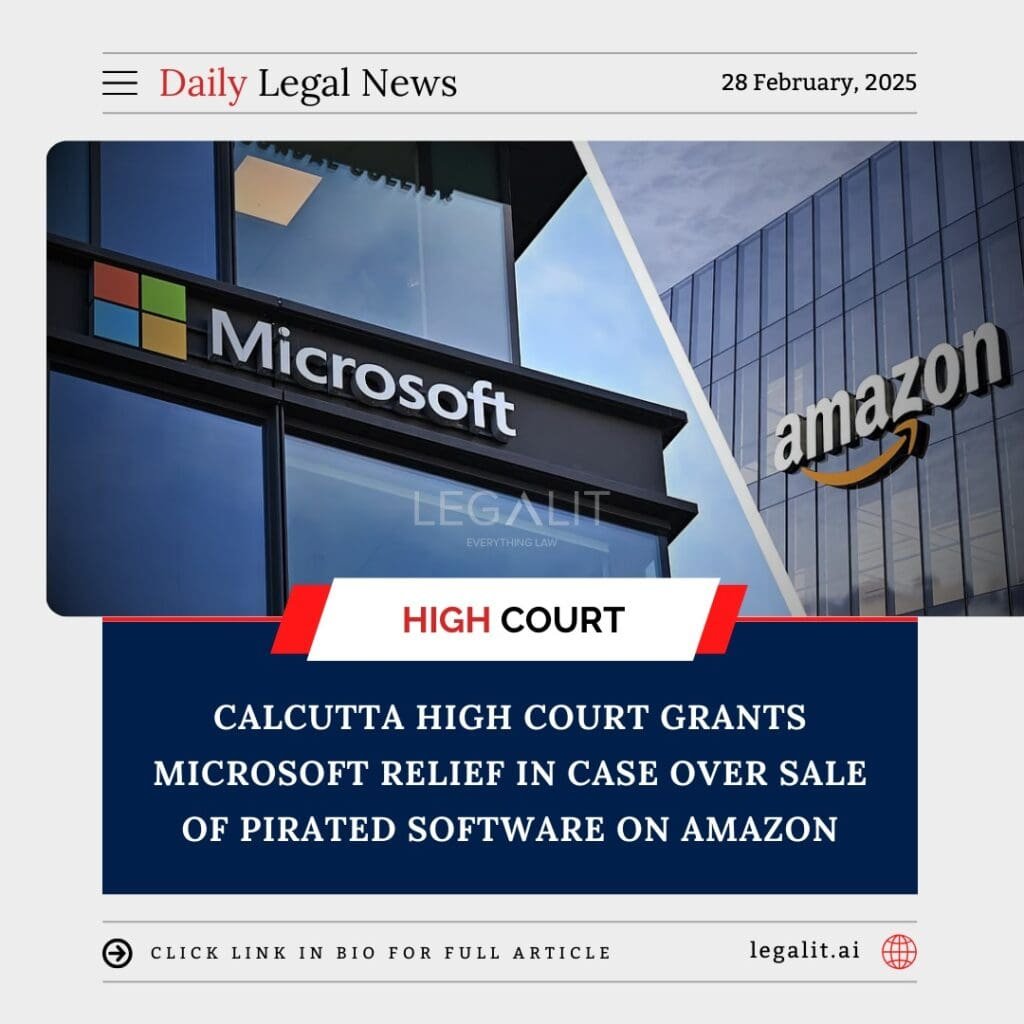
Background
The Calcutta High Court has ruled in favor of Microsoft in a case concerning the sale of pirated versions of its software on Amazon. Microsoft had approached the court, alleging that unauthorized sellers were distributing counterfeit copies of its software through the e-commerce platform, causing financial losses and reputational harm. The company argued that such sales violated its intellectual property rights and sought legal intervention to curb the infringement.
The case highlighted the growing challenge of counterfeit software sales on online marketplaces, where unauthorized sellers exploit platform policies to distribute pirated products. Microsoft contended that such sales not only affected its revenue but also posed cybersecurity risks to consumers using unverified software.
Court’s Rationale
The Calcutta High Court, after reviewing the evidence presented, ruled in favor of Microsoft and granted relief, citing the following reasons:
- Violation of Intellectual Property Rights
- The court found that unauthorized sellers were distributing counterfeit versions of Microsoft’s software, infringing on the company’s copyright and trademarks.
- It reiterated that such unauthorized distribution amounted to a direct violation of intellectual property laws.
- E-Commerce Platforms’ Responsibility
- The court emphasized that online marketplaces must take proactive steps to prevent the sale of pirated software.
- It stated that e-commerce platforms should implement stricter monitoring and verification processes to ensure only legitimate sellers operate on their websites.
- Consumer Protection Concerns
- The court noted that pirated software often lacks security updates and exposes users to cybersecurity threats, including malware and data breaches.
- It stressed the importance of protecting consumers from fraudulent sellers and ensuring they receive genuine products.
- Enforcement Measures and Injunction
- The court directed authorities to take action against sellers distributing pirated software.
- It also instructed Amazon to enhance its enforcement mechanisms to prevent similar instances in the future.
Existing Measures
- Microsoft actively monitors and takes legal action against unauthorized sellers distributing pirated copies of its software.
- E-commerce platforms have policies against counterfeit goods, but enforcement varies across different jurisdictions.
- Courts in India have previously ruled against the sale of counterfeit software, reinforcing intellectual property protections.
Conclusion
The Calcutta High Court’s decision strengthens intellectual property rights enforcement in India and sets a precedent for e-commerce platforms to take greater responsibility in preventing counterfeit sales. The ruling not only benefits Microsoft but also protects consumers from potential cybersecurity risks associated with pirated software. The case underscores the need for stricter digital marketplace regulations to curb intellectual property violations.